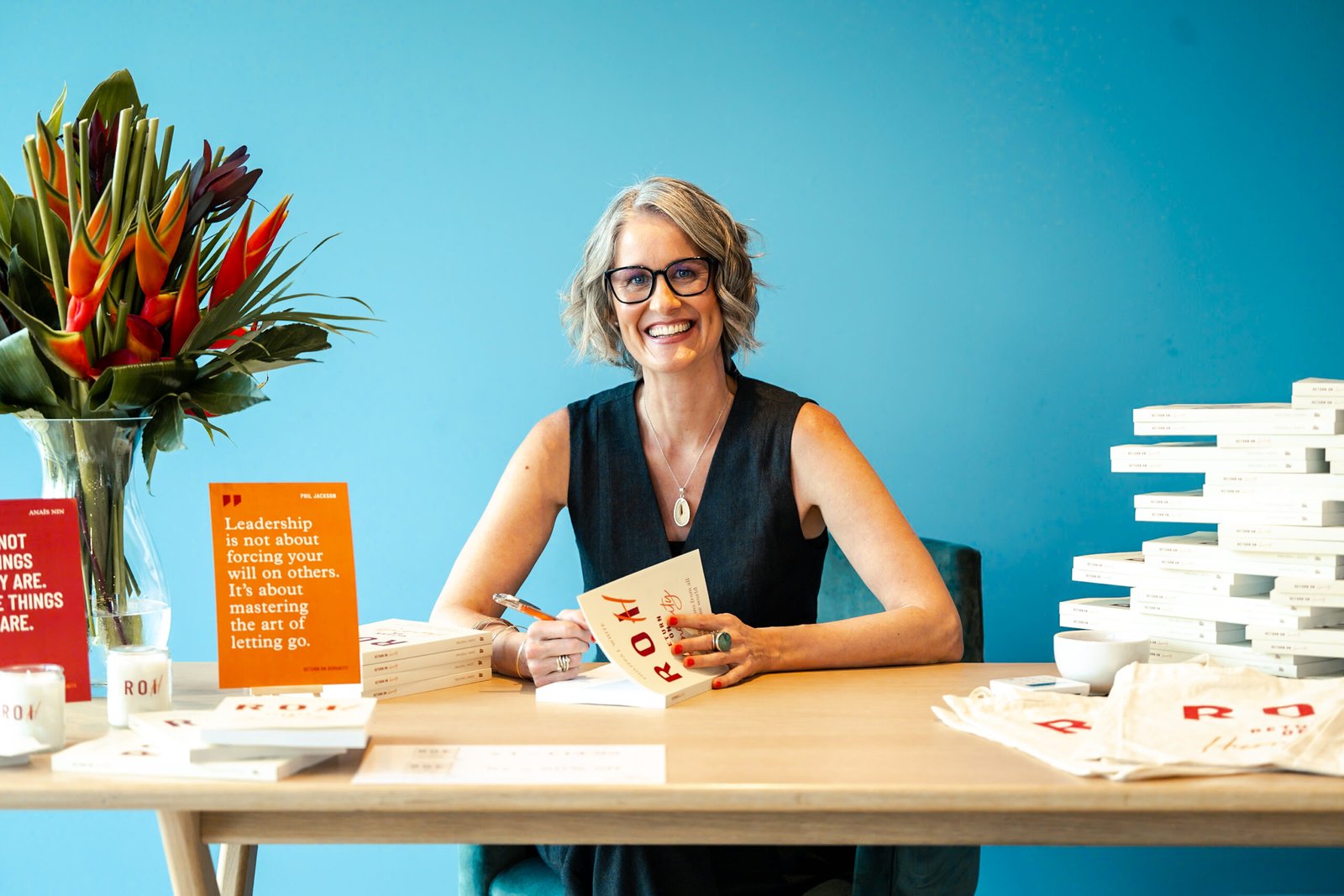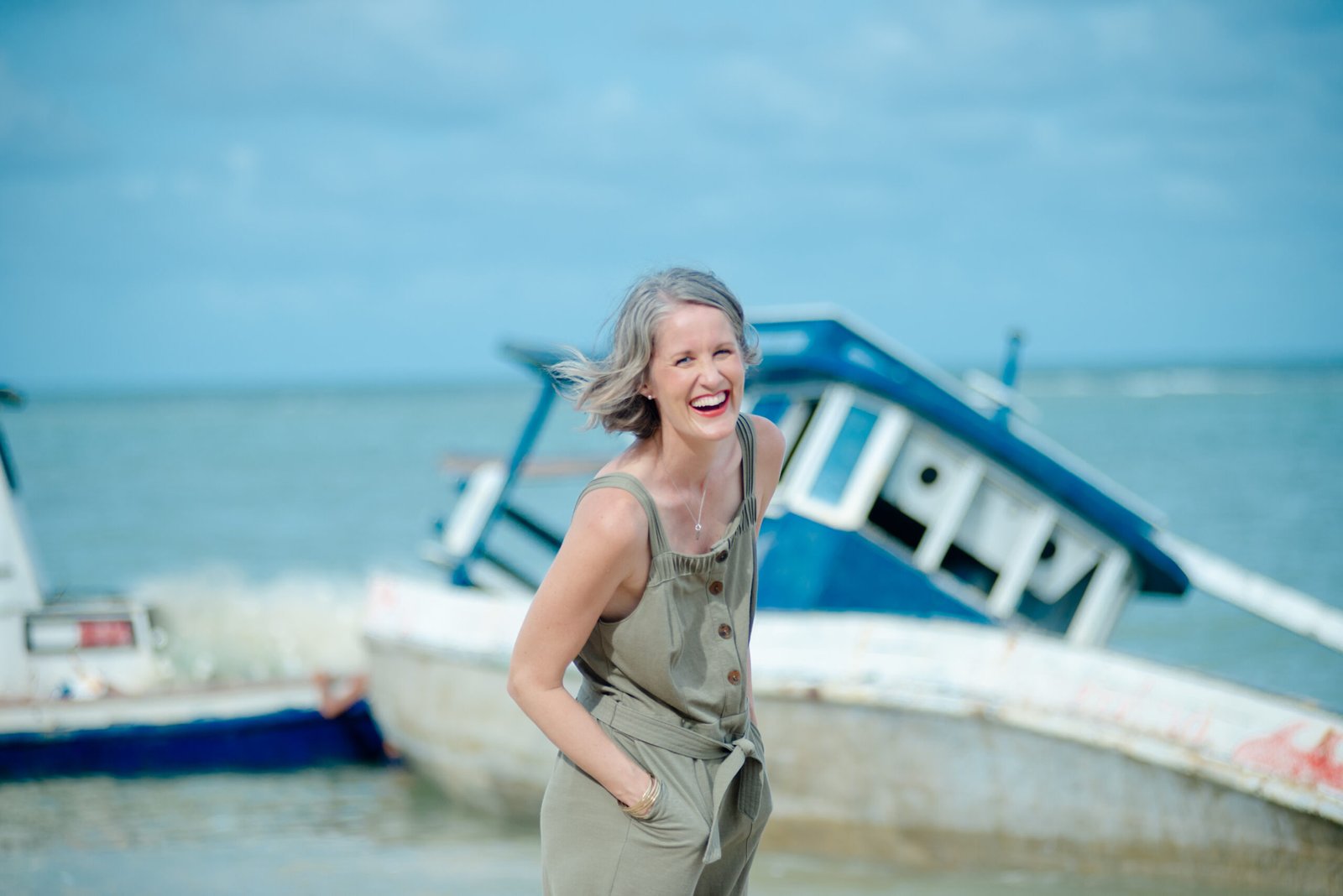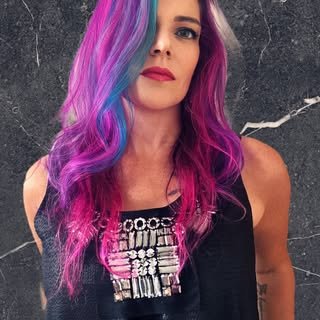The founder of TIE Leadership and bestselling author shares her journey from global advertising to reshaping the way we lead in an uncertain world.

Tell us about your journey! What led you to this point?
I’m a great believer that life is made up of a whole load of puzzle pieces, and over time, the pieces start to fit together.
I don’t believe we ever really know what the full image will be, and that is the beauty of it. But as our experiences start to come together and align, sometimes in the most surprising ways, we begin to uncover the deeper thread connecting them all: the impact we’re meant to have on the people and the world around us.
I come from a global background. I was born in South Africa, grew up in Canada, studied business there, and finished my degree in Bangkok, Thailand, on exchange. I then moved to London to work in advertising. It was there that I first came up with the idea for my business, registered it in the UK, and eventually made my way to Brazil, where I’ve lived ever since.
Like many founders, there was a catalyst. Mine came in 2004, when I travelled to South Africa for my uncle’s funeral. At the time, I thought I was happy living in London and building a career in advertising. But that moment marked a turning point in my life where something shifted.
My uncle, Neil White, had been a key figure in the anti-apartheid movement. He was Nelson Mandela’s doctor after Mandela’s release from prison, and someone who used his privilege to challenge a broken system. At the celebration of his life, I looked out across a sea of faces, there were people from all walks of life: cabinet ministers, comrades from the struggle, people from local communities. The stories they shared revealed just how deeply he had inspired them.
But as I further reflected on those stories, and looked around at everyone there that day, I realised just how much they had shaped him. His empathy and purpose came from his exposure to differences, and his values were shaped by those around him. His leadership was born from connection, building bridges, and expanding his personal circle. This is what made him the inspirational leader he was and created that fascination with perspective and possibility.
And that got me thinking.
Back in London, I was surrounded by brilliant minds, but we all looked and thought alike. We moved in similar circles, went to the same bars, and had the usual conversations. Yet we were expected to spark innovation, challenge norms, lead global brands and be inspirational leaders. It didn’t add up. If we really want to grow as leaders – to think originally, act bravely, and inspire and connect with others – we need to get out of our bubbles. We need to connect with people who are different from us. That’s how perspective is built and empathy cultivated. That’s how the best leaders are made, and how companies thrive.
So, I founded my business in the UK and moved to Brazil in 2005 to bring this vision to life. And I’ve never looked back.
I realised that the private sector needed more than just skills. It needed the critical competencies of courage, empathy, cultural intelligence, flexibility and vulnerability. In short, it needed humanity. From there, I dedicated my life to helping leaders step outside their echo chambers and develop the mindset, instincts and perspectives required to lead in today’s complex world.
That’s what TIE Leadership is all about.
Twenty years on, I’m still here in Brazil. I’m also the international bestselling author of Return on Humanity: Leadership lessons from all corners of the world, which was selected as a finalist for the Business Book Awards 2025 in Leadership. The work continues, and the puzzle keeps unfolding.
What’s the biggest result you’ve helped your clients achieve?
With everything I do, be it through my company TIE Leadership, or via my speaking, consulting, workshops or offsites, the key result is helping unlock critical skills for high-performing teams and leaders by shifting paradigms.
I love this quote by Anaïs Nin, “We do not see things as they are. We see things as we are.”
I believe that the key to sparking innovation lies in embracing difference.
Innovation doesn’t come from comfort zones, silos or doing the same thing every day. It comes from challenge, from unfamiliar perspectives and from seeing the world through someone else’s eyes. This is the crux of my work over the past two decades.
To bring this thinking to life, let me tell you a story.
In 2021, our team at TIE Leadership partnered with the Cleaner Cooking Coalition (CCC) ahead of the UN High-Level Dialogue on Energy, the first of its kind in 40 years. The CCC’s mission was critical: to work with the Malawi government to bring global attention to clean cooking at the UN meeting. A silent crisis that is affecting nearly a third of the world’s population.
The CCC team had the data, the passion, and the credibility. But they needed help cutting through the noise and putting the issue on the global table.
That’s where TIE came in. We developed a leadership programme and, for this opportunity, created a cohort of six professionals from around the world. Participants joined virtually from Switzerland, Australia and the UK, representing a range of industries – finance, venture capital, climate investing and marketing. These weren’t clean cooking experts, but that was the point. They brought a fresh perspective, and they learned a lot in the process, too.
Together, this diverse cohort and the CCC helped Malawi’s delegation craft a compelling message, including a speech delivered by the President of Malawi at the UN. The campaign not only raised awareness but also unlocked funding and global support, including a cleaner cooking pledge signed by the First Minister of Scotland and Malawi’s own Minister of Forestry and Natural Resources.
But what stood out most was what happened after the programme.
One of the participants, Luca Zerbini, MD of the venture capital firm UnaTerra and an expert in sustainable investments, said he’d never realised how massive the emissions from traditional cooking were.
“Everyone in the investment space talks about solar, wind and electric. But it doesn’t make sense to invest in clean cooking equipment for people who can’t afford it. The result is stoves that won’t be used, and a problem that remains.”
Suddenly, the team’s exposure to a different industry, culture, and problem opened minds and shifted paradigms. Even people who had been working in the area for years and were experts in it started to see the landscape differently.
This is exactly why diverse thinking matters. When we all look at a problem from the same angle, we miss what’s right in front of us.
That moment stuck with me. It’s so easy to surround ourselves with people who think like we do. It’s comfortable and familiar. But the real breakthroughs happen when we bring in voices that challenge us and actively seek out people who think differently.
And this is the biggest result I help my clients achieve: unlocking new ways of thinking that lead to transformative action. Whether it’s elevating critical global issues onto the world stage or helping leaders shift their mindset to inspire innovation in their own companies, the impact comes from seeing differently.
My work helps leaders and teams rewire how they understand challenges, collaborate across differences, and ultimately make better decisions. It’s that mindset shift that drives performance, resilience, and sustainable innovation.
What would be your biggest piece of advice for readers who want to achieve the same?
 As I was launching my book last year, my daughter was 13 years old. Out of the blue one day, as we were talking about the book and reflecting on the various talks I had been giving around the world, she asked me something unexpected: “What are the last few words of your book?”
As I was launching my book last year, my daughter was 13 years old. Out of the blue one day, as we were talking about the book and reflecting on the various talks I had been giving around the world, she asked me something unexpected: “What are the last few words of your book?”
I thought it was such an insightful and thoughtful question.
She then went on to explain that she always pays special attention to the final sentence of any book because she believes that is the main message that the author wants to leave with the reader.
I loved that she said that, as I really did think about those last lines. I wanted them to resonate as they really do matter.
This is what they say:
“The world needs what you have. You have more power than you think you do. The time is now.”
That, in essence, is the advice that I would give to anyone who is wanting to create change, spark innovation or lead with greater impact.
We often wait until we feel ready, or until we have everything perfectly lined up. But in my experience, the magic happens when we jump before we are ready.
People rarely regret the things they do. It’s the things they don’t do that haunt them.
So, my advice is to trust yourself and your instincts. Don’t wait until you’re ready. The world truly needs what you have, and now is the time to share it.
What are the biggest mistakes you see people make, and how can they be avoided?
One of the biggest mistakes I see leaders make in difficult times is forgetting that people are their greatest asset.
When the pressure builds and uncertainty takes over, some leaders tend to default to control, hierarchy, and short-term survival tactics. They fall back on outdated leadership models built on fear, aggression, and self-protection. But instead of creating resilience, that mindset is proven to erode trust, engagement, and long-term performance.
Here are a few recurring pitfalls I’ve seen:
Leading through fear and creating psychologically unsafe environments.
When leaders demand rigid compliance instead of empowering people and encouraging creativity, they stifle the very qualities their teams need to navigate change. And when times are tough, these qualities are needed more than ever. Innovation and adaptability only thrive when people feel safe to share ideas, take risks, and speak up. Fear shuts that down, but trust opens them right up.
Prioritizing numbers over people.
Profit-first vs people-first. In times of crisis, it’s common to see cost-cutting measures that start with people, while senior leaders often maintain the high salaries. Not only is this demoralising, but it also sends a loud message: people are expendable. There are so many examples of companies that retained people during the tough times and paid them by dropping senior salaries. The result ended up being a team of highly loyal, knowledgeable and motivated people who are bought into the mission. These companies, once times improved, then thrived. Without people, there is no performance. The human spirit is not a line item. When you ignore it, performance suffers.
Abandoning purpose when it’s needed most.
When the times get tough, some companies decide to shelve their purpose, treating it like a luxury rather than a core strategic driver. But purpose is not fluff, it’s a company’s foundation. It brings clarity, focus, and energy, not just to employees, but also to customers, partners, and stakeholders.
I love Derek Moore’s story, Co-Founder of Coffee & TV.
I spoke with Derek on my podcast TIE Unearthed (episode 86), and his example is proof that business success doesn’t have to come at the cost of human well-being and that it thrives when there is a clear purpose.
Coffee & TV is one of the UK’s leading creative studios, specialising in VFX, animation, and colour grading. It’s a certified B-Corp, and it’s thriving.
The company began as an escape from the old-school way of running companies. And specifically, from burnout. Derek had spent years in high-pressure creative roles and knew the toll of toxic work environments: long hours, constant stress, creative compromise. Alongside three friends, he decided to build something different. A company rooted in purpose, not pressure.
“We started it as a lifestyle project,” Derek told me. “We didn’t even think of it as a business at first. We just knew there had to be a better way.”
And he proved there was a better way. They built a space where creativity could flourish without burnout. And where artists led the direction of the business, not accountants. Growth was slow, mindful, and intentional. The goal wasn’t just profit, it was joy, belonging, great work, done well, by people who care.
“You can’t treat people like they’re expendable,” Derek said. “We want people to build full careers here. To feel they can express themselves fully. That means giving them space to learn and grow.”
It’s a leadership style rooted in self-awareness, empathy, and care. And it’s working. Not just in terms of retention and culture, but in the quality of the work and the company’s growing success. They’ve recently joined the Omnicom network and continue to grow, now having offices in Los Angeles, New York and Austin (USA).
Purpose builds trust, it strengthens teams, and it forges deep connections both internally and externally. And in uncertain times, it becomes a rallying point that’s bigger than fear.
To avoid these common mistakes, here’s what I tell leaders:
Humanity isn’t a soft skill, it’s your edge.
Invest in your people. Communicate openly. Create a culture of psychological safety. Nurture trust. And let purpose guide you, not just in good times, but especially when the path gets hard.
It’s not only the right thing to do.
It’s the most strategic move you can make.
How do you plan on further growing your business?
Growth for me has never just been about scale, it’s about deepening impact and staying true to our original purpose: unlocking critical skills by shifting paradigms.
From the beginning, bringing together the global north and the global south has been central to my work where, over the years, I have created opportunities for mutual learning and a powerful win-wins. Whatever direction we grow in, staying true to this ethos will always be a priority.
Since the pandemic, we’ve significantly evolved our offerings; from individual immersive leadership development opportunities to virtual cohort leadership programmes, scalable offerings involving up to 500 participants, keynote speaking, workshops, and offsites. We’ve proven that our experiential approach can be delivered across multiple formats, making an impact across borders, cultures, and sectors.
We’re currently working with several new clients, which means more leaders will step out of their comfort zones, engage with diverse perspectives, and return to their roles understanding the power of tapping into their human competencies with renewed clarity, empathy, and agility.
At the same time, my book Return on Humanity has opened doors to further speaking engagements and collaborations with like-minded organizations ready to challenge outdated paradigms. This has become another exciting growth avenue where I use storytelling, thought leadership, and evidence-based insights to rewire how businesses view their role in society.
Now more than ever, leadership is at a crossroads. We’re facing a global crisis of disconnection, from rising workplace disengagement and record burnout to political and corporate leaders clinging to outdated, authoritarian approaches.
But the data is clear: control doesn’t drive success – humanity does.
The World Economic Forum has identified human skills – empathy, adaptability, creativity, emotional intelligence – as the most critical for the future of work. Yet too many businesses still treat them as optional. Return on Humanity dismantles that mindset and makes the case for these skills as the foundation of long-term, competitive success.
What’s more, our global perspective shows that Western businesses no longer have a monopoly on “the right way” of doing things. Profound lessons emerge when we create space for dialogue between richer and poorer nations, and by shifting the lens, we challenge assumptions and unlock fresh insights – the kind today’s leaders urgently need.
Ultimately, my plan is to keep building these bridges between people, sectors, and ideas; and to grow TIE by helping companies unlock humanity as a serious competitive advantage.
Where can the readers find you?
Readers can find me at philippajwhite.com
LinkedIn @ https://www.linkedin.com/in/philippajanewhite
Instagram @ https://www.instagram.com/philippawhite

